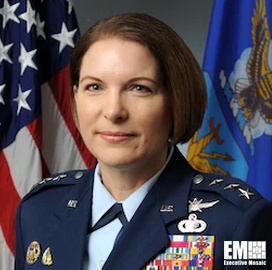The U.S. Air Force’s new office for cyber as well as intelligence, surveillance and reconnaissance operations is continuing work to establish the service branch’s Advanced Battle Management System (ABMS).
“We’ve got to streamline the speed and accuracy of repetitive tasks,” Lt. Gen. Mary O’Brien, deputy chief of staff for A2/6 said. “We’ve got to free up and shift human intention and cognition toward those higher-level reasoning and judgment problem sets.”
The A2/6 unit is working on efforts to deploy modular software-defined mesh network capabilities and other open-architecture systems such as radios to support communication and translation across disparate platforms, National Defense Magazine reported Wednesday.
The unit is also working on operations across the electromagnetic spectrum including information warfare to support the joint all-domain command and control (JADC2) concept.
“Their mission is to defend and ensure electromagnetic spectrum access for the Air Force and DoD activities in support of our national policy objectives and global operations,” she noted.
“We will need to embrace modern technologies, especially those from our industry partners, to deliver the operational networks and threat information our joint warfighter needs to generate combat power,” O'Brien added.










